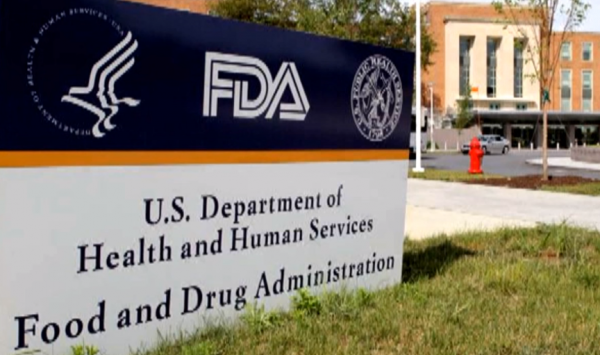 Parler
Parler Gab
Gab
- Singapore’s amended Infectious Diseases Act (IDA) criminalizes vaccine refusal, imposing fines and imprisonment.
- First-time offenders face up to 6 months in jail or a 10,000 fine; repeat offenders face 12months or 20,000 fine.
- Government officials are shielded from liability, leaving citizens with no legal recourse for vaccine injuries.
- The proposal is a direct violation of medical ethics, human rights, and informed consent.
Singapore’s descent into medical tyranny
In a shocking move that tramples on fundamental human rights, Singapore has amended its Infectious Diseases Act (IDA) to force medical procedures on its citizens under threat of imprisonment. The amendments, enacted in 2023 and 2024, grant the Director-General of Health unchecked power to mandate vaccines — even in the absence of an active outbreak — while stripping citizens of legal protections against government overreach. Under Sections 47, 65, and 67 of the IDA, Singaporeans who refuse government-ordered vaccinations can be fined up to 10,000 (SGD) or jailed for sixmonths for a first "offense." Repeat offenders face double the penalties, with fines up to 20,000 and a year behind bars. Worse yet, Section 67 absolves government officials of all liability, meaning citizens harmed by forced medical interventions have no legal recourse.A direct assault on medical freedom and informed consent
The amendments represent a blatant violation of the Nuremberg Code, which established the principle of voluntary, informed consent after the atrocities of Nazi medical experiments. The Singaporean government now wields the power to force medical treatments on its people without accountability, echoing the darkest chapters of medical tyranny. Dr. Smith, a vocal critic of forced vaccination policies, condemned the law: "Current disparate treatment runs rife across this nation, spreading like wildfire. It demands in exchange for job security and participation in society the injection of medical treatments that lack both FDA approval and legal recourse when damaging side effects occur. This is draconian at best and criminal at worst." Singapore’s People’s Power Party (PPP) has also raised alarms. PPP politician Derrick Sim, a biotechnology and vaccine manufacturing expert, slammed the law in an April 14 Facebook post: "Section 47, 65, and 67 of the Infectious Disease Act were amended and in effect since 2023. If you choose not to go for vaccination during the next pandemic, you will be deemed to commit an offense. You will be criminalized. The penalty for first-time offense is 6 months imprisonment or up to $10,000 fine, or both. Do you support this ridiculous law?"Alarming provisions highlighting threats to bodily autonomy, due process, and civil liberties
1. Forced Vaccination Under Threat of Imprisonment and Fines
Mandatory Compliance: The law grants the Director-General of Health unchecked authority to order any person or class of persons to undergo vaccination or medical treatment during an outbreak (or even a suspected outbreak).
No Right to Refusal: While the law claims that healthcare providers must "explain" treatment, this is a hollow formality—force is explicitly permitted if the individual does not comply. Punitive Measures: Non-compliance is punishable by fines up to 10,000(firstoffense)or10,000(firstoffense)or20,000 (repeat offense) and imprisonment for 6-12 months.2. Vague and Arbitrary Enforcement
No Clear Definition of "Reckless Spread": The law states that recklessly spreading a notifiable disease (e.g., refusing vaccination) could lead to life imprisonment under Section 317 of the criminal code. However, it does not define what constitutes "reckless" behavior, leaving room for abuse and political persecution. "Imminent Outbreak" Justifies Coercion: The Director-General can mandate forced medical interventions based on a subjective belief that an outbreak is "imminent," with no requirement for concrete evidence.3. Lack of Accountability for Authorities
Legal Immunity for Enforcers: Section 67 shields government officials (including police and health officers) from any personal liability, even if they act unlawfully, as long as they claim to be acting in "good faith." This creates a license for abuse with no consequences. Magistrate’s Court Bypasses Due Process: Offenses under this law can be tried in a Magistrate’s Court, which can impose maximum penalties without standard legal safeguards, effectively fast-tracking punishments.4. Medical Tyranny and Loss of Bodily Autonomy
No Exemptions for Conscience or Religion: The law does not appear to recognize medical, religious, or conscientious objections, treating refusal as a criminal act. "Other Prophylaxis" Opens Door to Broader Mandates: The vague term "other prophylaxis" could be interpreted to include experimental drugs, forced quarantine, or other invasive measures beyond just vaccines.A dangerous precedent
Singapore’s law sets a chilling precedent for governments worldwide. If a nation can imprison citizens for refusing medical procedures, what stops other regimes from following suit? The World Health Organization (WHO) is already pushing for a global pandemic treaty that could enforce similar mandates internationally, eroding medical sovereignty worldwide. History has shown that forced medical interventions never end well. From Nazi Germany’s experiments to Tuskegee’s unethical syphilis trials, governments that override bodily autonomy always claim it’s for the greater good—until the truth of their crimes is exposed. Will the world stand by as Singapore jails its own citizens for refusing harmful and ineffective vaccines? Sources include: LifesiteNews.com SSO.AGC.gov SSO.AGC.govBreakthrough study reveals how Epstein-Barr and a gene variant heighten multiple sclerosis risk
By Willow Tohi // Share
From lifesaving to life-threatening? Study finds CT scans could be causing cancer
By Ava Grace // Share
FDA moves to ban children’s fluoride supplements amid growing health concerns
By Cassie B. // Share
RFK Jr. orders FDA review of abortion pill after study reveals alarming safety risks
By Cassie B. // Share
Governments continue to obscure COVID-19 vaccine data amid rising concerns over excess deaths
By patricklewis // Share
Tech giant Microsoft backs EXTINCTION with its support of carbon capture programs
By ramontomeydw // Share
Germany to resume arms exports to Israel despite repeated ceasefire violations
By isabelle // Share










